 Andrew Cooper, University of Liverpool, United Kingdom
Andrew Cooper, University of Liverpool, United Kingdom
Andy is a Nottingham graduate (1991), also obtaining his Ph.D there in 1994. After his Ph.D, he held a 1851 Fellowship and a Royal Society NATO Fellowship at the University of North Carolina at Chapel Hill, USA, and then a Ramsay Memorial Research Fellowship at the University of Cambridge. In 1999, he was appointed as a Royal Society University Research Fellowship in Liverpool. In 2007, he was the founding Director of the Centre for Materials Discovery—the forerunner of the MIF—which cemented a long-term strategic collaboration between Unilever and the University of Liverpool. He was Head of Chemistry and then the first Head of the School of Physical Sciences in the period 2007-2012, during which time he served on the University Council. In 2017, he co-founded a spin-out company, Porous Liquid Technologies, with collaborators at Queens University Belfast, based on an entirely new class of material, porous liquids, invented in the UK as part of an EPSRC-funded project (Nature, 2015, 527, 216).
Andy led the bid to establish the Materials Innovation Factory (MIF) via the UK Research Partnerships Infrastructure Fund and he is its first Academic Director. He is also the Director of the £10 M Leverhulme Centre for Functional Materials Design. His main research interests are organic materials, supramolecular chemistry, and materials for energy production and molecular separation. This is underpinned by a strong technical interest in high-throughput methods and robotics. A unifying theme in his research is the close fusion of computational prediction and experiment to discover new materials with step-change properties (Nature, 2011, 474, 367; Nature, 2017, 543, 657). This has involved close collaboration with Graeme Day, Professor of Chemical Modelling at the University of Southampton.
Andy was elected to the Royal Society in 2015. He has been awarded the Macro Group Young Researchers Award (2002), the RSC Award in Environmentally Friendly Polymers (2005), the McBain Medal (2007), the Corday-Morgan Prize (2009), the Macro Group Award (2010), a Royal Society Wolfson Research Merit Award, the Tilden Prize (2014), and the American Chemical Society Doolittle Award (2014). He was also the 2015 MIT-Georgia Pacific Lecturer in Organic Chemistry. In both 2011 and 2014, Andy was named in a Thomson Reuters list as one of the Top 100 materials scientists of the last decade. He was also named in the more recent 2017 Clarivate Highly Cited list in the field of chemistry. He was awarded an ERC Advanced Investigators grant in 2012 (RobOT). In 2015, he was appointed as a Consultant Professor in Hauzhong University of Science & Technology, China. He was also appointed as an Honorary Professor at East China University of Science and Technology, Shanghai, in 2017.
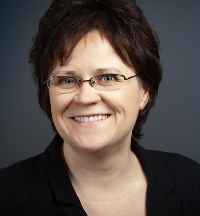 Cathleen Crudden, Queen's University, Canada
Cathleen Crudden, Queen's University, Canada
Cathleen Crudden holds a Distinguished Research Professorship at Queen’s University and is Canada Research Chair (Tier 1). She runs a satellite lab at the Institute of Transformative Bio-Molecules (ITbM) in Nagoya Japan. Cathleen has won numerous research awards including the 2019 Cope Scholar award of the American Chemical Society, the 2018 Carol Taylor award from the International Precious Metals Institute among others. Cathleen has held visiting professorships in Japan, Spain and France.
She is Associate Editor for ACS Catalysis and sits on the advisory boards for RIKEN (Japan). She served as President of the Canadian Society for Chemistry in 2012/2013 and is currently chair of the NSERC–Chemistry Liaison Panel.
Trained as an organometallic/catalysis chemist, Cathleen has made significant inroads in materials chemistry. Her recent work identifying a new class of carbon-based SAMs has been called "game changing" and "the new gold standard" by international experts.
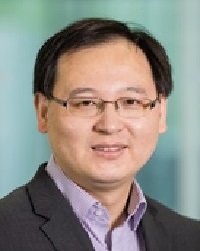 Xinliang Feng, TU Dresden, Germany
Xinliang Feng, TU Dresden, Germany
Prof. Feng is a full professor and the head of the Chair of Molecular Functional Materials at Technische Universität Dresden. He has published more than 450 research articles which have attracted more than 48000 citations with H-index of 105 (Google Scholar). He has been awarded several prestigious prizes such as IUPAC Prize for Young Chemists (2009), European Research Council (ERC) Starting Grant Award (2012), Journal of Materials Chemistry Lectureship Award (2013), ChemComm Emerging Investigator Lectureship (2014), Fellow of the Royal Society of Chemistry (FRSC, 2014), Highly Cited Researcher (Thomson Reuters, 2014-2018), Small Young Innovator Award (2017), Hamburg Science Award (2017), EU-40 Materials Prize (2018), ERC Consolidator Grant Award (2018), and member of the European Academy of Sciences (2019). He is an Advisory Board Member for Advanced Materials, Chemical Science, Journal of Materials Chemistry A, ChemNanoMat, Energy Storage Materials, Small Methods, Chemistry -An Asian Journal, Trends in Chemistry, etc. He is the Head of ESF Young Research Group "Graphene Center Dresden", and Working Package Leader of WP Functional Foams & Coatings for European Commission’s pilot project “Graphene Flagship”.
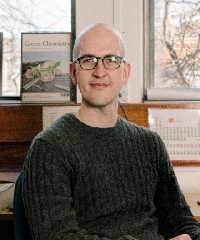 Matt Fuchter , Imperial College London, United Kingdom
Matt Fuchter , Imperial College London, United Kingdom
Matthew Fuchter is a Professor of Chemistry, an ESPRC Established Career Fellow, and co-Director of a newly established Centre for Drug Discovery Science at Imperial College London. He is a member of multiple multidisciplinary centres of excellence at Imperial including the Centre for Plastic Electronics and the London Centre for Nanotechnology. His research concerns the development of chemistry-led approaches to interrogate function in chemistry, materials and medicine. In the areas of materials chemistry, a key focus is the study of chiral molecules, materials and devices.
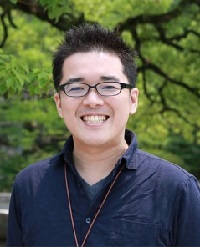 Shuhei Furukawa, Kyoto University, Japan
Shuhei Furukawa, Kyoto University, Japan
Shuhei Furukawa received his PhD degree in 2005 from Kyoto University. After a postdoctoral research at Katholieke Universiteit Leuven (KUL), he returned to Kyoto University in 2007 as an assistant professor. In 2008, he moved to the JST ERATO Kitagawa Integrated Pores Project as a group leader and since 2010 he has been an associate professor in the Institute for Integrated Cell-Material Sciences (WPI-iCeMS), Kyoto University. His main research interest is in coordination chemistry and particularly synthesis and property of coordination materials at the multiple-length scales and their applications in biology and environment and energy related issues.
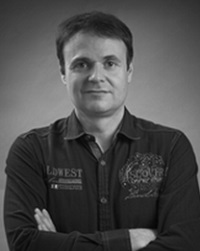 Nicolas Giusepponne, University of Strasbourg, France
Nicolas Giusepponne, University of Strasbourg, France
Nicolas Giuseppone is Distinguished Professor of Chemistry at the University of Strasbourg. He received his PhD in asymmetric catalysis (laboratory of Prof. H.B. Kagan), performed a post-doctoral research in total synthesis (laboratory of Prof. K.C. Nicolaou), and entered the field of supramolecular chemistry as a CNRS research associate (laboratory of Prof. J.-M. Lehn). In 2008 he started his research group and was awarded the ERC Starting Grant in 2010. In 2013, he became Full Professor of chemistry at the University of Strasbourg and a junior member of the Institut Universitaire the France (IUF). His research interests are focused on supramolecular chemistry, molecular machines, and functional materials.
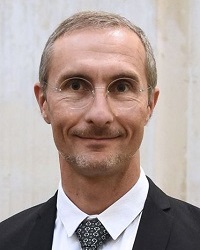 Ivan Huc, Ludwig Maximilians University of Munich, Germany
Ivan Huc, Ludwig Maximilians University of Munich, Germany
Ivan Huc studied chemistry at the Ecole Normale Supérieure (ENS, Paris), and received his PhD in 1994 from the University of Paris VI for work done both at ENS and MIT (USA). From 1995, he worked at the University of Strasbourg as a Post-doc, then as a CNRS researcher. In 1998, he moved to the European Institute of Chemistry and Biology at the University of Bordeaux as a CNRS research director. Since 2017, he has been a Professor of Chemical Biology at the Department of Pharmacy of the University of Munich (LMU, Germany). His research focuses on foldamers and biomimetic supramolecular chemistry.
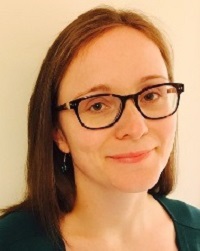 Kim Jelfs, Imperial College London, United Kingdom
Kim Jelfs, Imperial College London, United Kingdom
Kim Jelfs is a Senior Lecturer and Royal Society University Research Fellow and specialises in the use of computer simulations to assist in the discovery of supramolecular materials. After a PhD modelling the crystal growth of zeolites at UCL, Kim worked as a post-doc across the experimental groups at the University of Liverpool, before beginning her independent research at Imperial College in 2013. She was awarded a Royal Society of Chemistry Harrison-Meldola Memorial Prize in 2018.
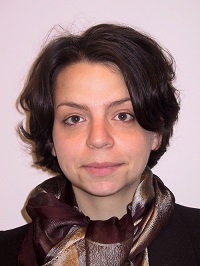 Nathalie Katsonis, University of Twente, Netherlands
Nathalie Katsonis, University of Twente, Netherlands
Nathalie leads a research group dedicated to exploring motion in bioinspired molecular systems, with a special focus on chirality. She received her PhD from the University Pierre et Marie Curie, working on the nanoscale probe of molecular self-assemblies in two dimensions. She was a postdoctoral fellow in Ben Feringa’s group in Groningen, where she extended her research to artificial molecular switches and motors. She is currently Professor of Chemistry at the University of Twente (The Netherlands). In 2016 she received the Gold Medal of the Royal Netherlands Chemical Society, in recognition for her achievements in chemistry.
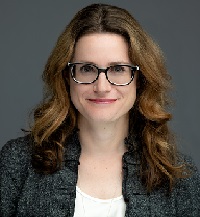 Jodie Lutkenhaus, Texas A&M University, United States
Jodie Lutkenhaus, Texas A&M University, United States
Jodie L. Lutkenhaus is the William and Ruth Neely Faculty Fellow and an Associate Professor in the Artie McFerrin Department of Chemical Engineering at Texas A&M University. Lutkenhaus received her B.S. in Chemical Engineering in 2002 from The University of Texas at Austin and her Ph.D in Chemical Engineering in 2007 from Massachusetts Institute of Technology. Following a postdoctoral position at University of Massachusetts Amherst, she joined the faculty at Yale in 2008. In 2010, she moved to Texas A&M University and was promoted to Associate Professor in 2015. Current research areas include polyelectrolytes, redox-active polymers, energy storage, and fluids in confinement. She has received recognitions including World Economic Forum Young Scientist, Kavli Fellow, NSF CAREER, AFSOR YIP, 3M Non-tenured Faculty Award. She is the 1st Vice Chair of the AICHE Materials Engineering & Sciences Division. Lutkenhaus is the Deputy Editor of ACS Applied Polymer Materials. She also serves on the Editorial Advisory Boards for ACS Macro Letters, Macromolecules, ACS Applied Nano Materials, Molecular Systems Design & Engineering, and Materials Today.
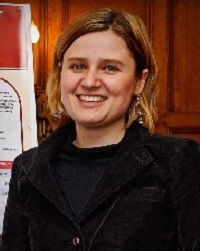 Natalia Shustova, University of South Carolina, United States
Natalia Shustova, University of South Carolina, United States
Natalia B. Shustova began her professorship at the University of South Carolina in 2013. She received her MS degree in materials science from Moscow State University (MSU), Russia, a PhD degree in physical chemistry from MSU, and a PhD degree in inorganic chemistry from Colorado State University (USA). Her postdoctoral research was conducted at the Massachusetts Institute of Technology. Her current research interests include graphitic hybrid materials for sustainable energy conversion, stimuli-responsive materials, sensors, and artificial biomimetic systems.
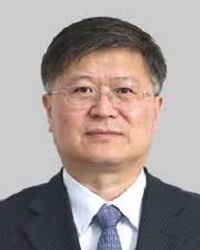 He Tian , East China University of Science and Technology, China
He Tian , East China University of Science and Technology, China
He Tian received his Ph.D. degree from East China University of Science & Technology (ECUST) in 1989. He was appointed Cheung Kong Distinguished Professor by the Education Ministry of China in 1999. He is a member of the Chinese Academy of Science and a Fellow of the World Academy of Sciences (TWAS) for the advancement of science in developing countries. Prof. Tian serves as Vice President of Chinese Chemical Society since 2019. His current research interests focus on the development of interdisciplinary materials science that determines the electronic and optical properties of materials.




















